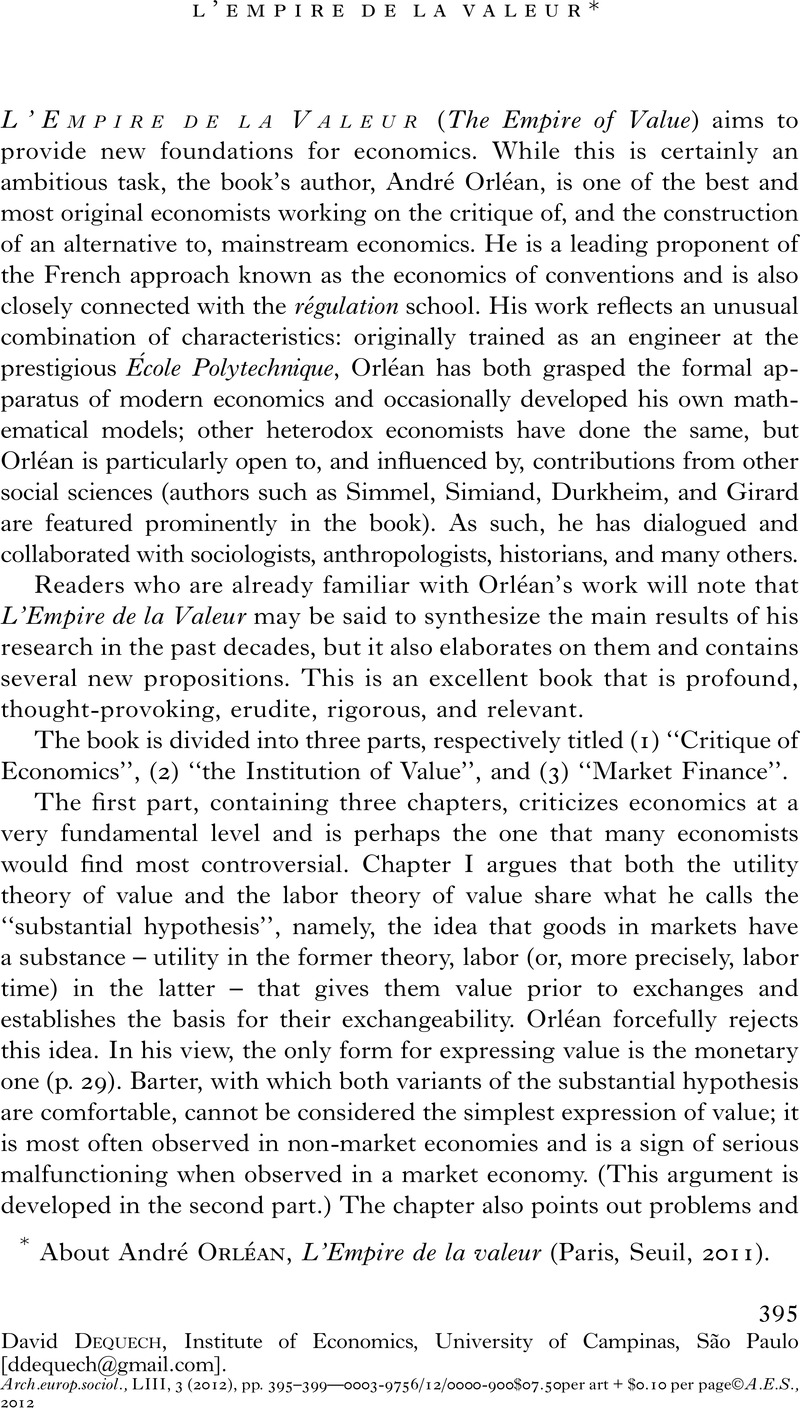No CrossRef data available.
Article contents
L’empire De La Valeur - About André Orléan, L’Empire de la valeur (Paris, Seuil, 2011).
Published online by Cambridge University Press: 11 January 2013
Abstract

- Type
- Book Reviews
- Information
- European Journal of Sociology / Archives Européennes de Sociologie , Volume 53 , Issue 3 , December 2012 , pp. 395 - 399
- Copyright
- Copyright © A.E.S. 2012
References
1 While pointing out the need for general equilibrium theory to implicitly assume institutions other than the price mechanism, the book contains only a few references to explicit analyses of such institutions that employ the neoclassical assumptions of utility maximization and equilibrium. Neither is it particularly concerned with game theory, which obviously deals with strategic interactions and which is discussed by Orléan in other works (e.g., Orléan André, 1997, “Jeux évolutionnistes et normes sociales”, Économie Appliquée, 50 (3), pp. 177-198; Orléan André, 2004, “L’économie des conventions: définitions et résultats”, in Orléan André, ed., Analyse économique des conventions, 2eédition, Paris, PUF).
2 For a more detailed presentation and discussion of Orléan’s theory of money, based on several of his writings and comparing it with the Post Keynesian approach, see Dequech David, 2012,“Is money a convention and/or a creature of the State? The convention of acceptability, the State, contracts, and taxes”, Stanford, Mimeo.
3 Aglietta et André develop a forceful argument for the non-viability of a market economy without a generally accepted money: the uncertainty associated with the unity of account and with what others will accept as a means of payment may prevent transactions from taking place (Aglietta Michel et André Orléan, 2002, La monnaie entre violence et confiance,Paris, Odile Jacob).
4 Orléan repeatedly refers to the latter as the fundamental value of a stock. Doing so after citing Keynes does not properly reflect Orléan’s own understanding of Keynesian uncertainty and rejection of value objectivity (independent of market interaction). “While enterprise implies estimating the present value of the future stream of dividends, in Keynes’s theory this present value must not be confused with an objective, fundamental value, determined by objective, knowable fundamentals, as in standard economic theory. Expectations about future dividends are formed under conditions of what one may call Keynesian uncertainty and thus are not objective, even if they are not purely subjective” (Dequech David, 2011, “Financial conventions in Keynes’s theory: the stock exchange”, Journal of Post Keynesian Economics, 33 (3), pp. 469-489). To be sure, Orléan later seems to separate “fundamental” from “objective” (e.g., p. 306), but that is not the case in the predominant usage of the term “fundamental value” in financial economics.


